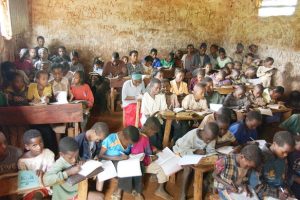
Social protection contributes significantly to reducing poverty and inequality and remains a vital tool for achieving inclusive growth and social cohesion. It is believed that social protection is a productive investment in human capital and is vital to protect existing jobs and stimulate job creation. Though social protection is necessary for inclusive and equitable growth, some 90 percent of the African labor force is not covered by social security systems, according to the International Labour Organization.
Extending social protection coverage to the largest part of the population, mainly those in the informal economy, remains one of the main challenges to be addressed by African policymakers and social partners. In the continent, limited access to social protection mechanisms is also a major policy challenge in achieving sustainable growth, productive employment, and decent work. However, social protection is primarily a human right.
According to the ILO, a growing number of African countries have adopted national social protection policies that consider national social protection floors as a priority. Some countries have also increased funding from the government to social protection. Considerable progress towards higher levels of social protection coverage has been achieved in a number of countries across Africa, which shows that, if there is political will, some investment in social protection can be made even in situations of budgetary constraints.
The Yaoundé Tripartite Declaration on the implementation of the Social Protection Floor in Africa, which was adopted by 47 African member States in 2010, recognized that sound social protection is a political, economic and social necessity and a prerequisite for inclusive growth. A strong message stressed by the AU Agenda 2063 which states: “To guarantee the high standard of living as a right, an Africa of 2063 will be characterized by the fact that all its citizens would have affordable social security and where social protection is extended to all vulnerable sections of society.”
In light of this view, Ethiopia is also undertaking various efforts to ensure social protection. The first national social protection conference which was held at ECA conference hall this week with the theme “Social Protection for Inclusive Development in Ethiopia” can be a showcase for this. While addressing conference participants, Labor and Social Affairs Minister Ergogie Tesfaye said “The Ethiopian government is now committed to scaling up social protection for inclusive and sustainable development.
Though, according to Ergogie, a National Social Protection Policy was issued in 2014 when poverty rate and food insecurity were 22 and 33.6 percents, respectively, it did not solve the prevailing social problems. The Policy mainly contains coordinated protective measures to those susceptible to serious vulnerability due to natural and manmade risks, establish multifaceted social insurance mechanisms to prevent exposure to risks, strengthen earnings and improving livelihoods of citizens, improve employment opportunities and living conditions, and provide legal protection and support for vulnerable to abuse and violence.
Without being limited to providing basic services and temporary supports, the implementation of social protection includes measures of strengthening public participation and mobilization, based on the economic, social, cultural, and human rights enshrined in the constitution that have transformative nature, establish coordinated system to reduce economic and social differences and imbalances in the society. In this policy, segments of the society vulnerable to different social and economic problems, especially, children, women, persons with disabilities, elderly, labor constrained unable to make earnings, and the unemployed who are living under difficult circumstances are given special attention.
Though the policy is there, due to low implementation performance, viable changes are yet registered. As a result, one can see vulnerable children in the capital. One can also see people with disabilities who are not getting any support. “If there is no change at the household level, it is foolishness to expect better things at the national level. Unless the marginalized people have got basic needs, talking about social protection is worthless” said Laureate Yetnebersh Nigussie, a lawyer and social activist who took part in the event.
“We (therefore) need to ensure the fair and equal economic benefit of citizens as sustainable economic growth cannot be achieved without inclusive development,” Ergogie said stressing the need to scale-up social protection work under the national social protection policy. “We can’t think about economic growth without inclusive development.” UNICEF Ethiopia Social Policy Chief, Gaby Guerrero Serdan said on her part Ethiopia has done well in achieving the Millennium Development Goals, and social protection is crucial to achieve its national plans and assist growth.
“Social protection is a catalytic strategy to reduce poverty and hunger as it is interlinked with nutrition, health, education, employment, and productivity,” she said. Serdan further noted that it is time to choose on what kind of social protection is required in Ethiopia for its vulnerable parts of the community as the country is in an ongoing reform and aspiring to be a middle-income country.
Ambassador of Sweden to Ethiopia, Torbjorn Petterson, for his part commended the Ethiopian Government for the progress it has shown in social protection. He said the conference will build a solid foundation for improving the implementation of the National Social Protection Policy in the near future and to ensure that all sectors contribute towards serving the most vulnerable groups of our society.
The Ethiopian Herald May 16/2019
BY GIRMACHEW GASHAW





